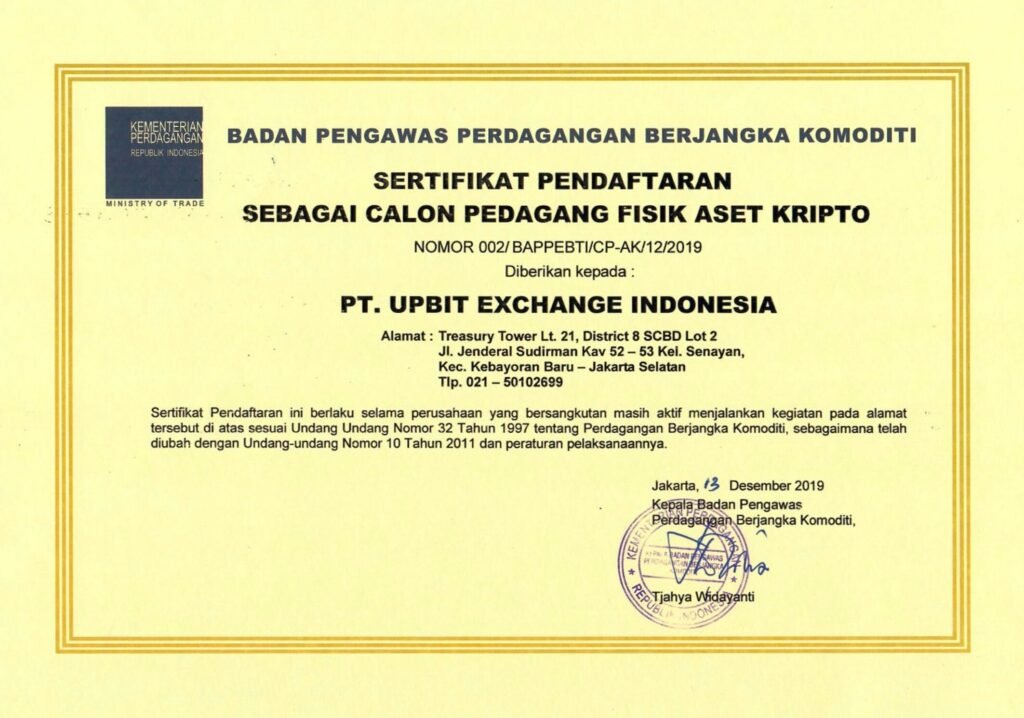2025 Ushers in a More Disciplined Era for Traders and Brokers
February 18, 2025

Forex regulation Indonesia: The forex market in Indonesia is no longer the lightly policed space it once was. In 2025, a more structured regulatory culture is taking hold, shifting the mood from reactive enforcement to proactive oversight. This new tone is largely driven by rising participation among younger retail investors — and the risks that come with it.
At the heart of this shift is a more coordinated push between Bappebti, the Commodity Futures Trading Regulatory Agency, and OJK, the Financial Services Authority. Together, they’re reshaping the legal landscape, tightening control over how forex is marketed, and making it clearer which brokers are playing by the rules.
Forex regulation Indonesia: Licensed Brokers Now Define the Legal Playing Field

Source: X
As forex trading gains popularity, Bappebti’s licensing requirements have become the core of what defines legal access to the market. In 2025, it’s no longer enough for a platform to offer local language support or payment integration — it must be fully registered with the Indonesian government.
This has pushed brokers to either align with local compliance standards or risk being shut out of the market. Bappebti continues to expand its list of approved brokers, while also publicly naming and blocking unlicensed platforms, some of which have been aggressively advertising to Indonesian users.
The result is a clearer divide: those operating transparently under national law — and those avoiding it.
Forex regulation Indonesia: Retail Traders Are Driving Regulatory Awareness
One of the most telling trends this year is how Indonesian traders themselves are becoming more alert to regulatory signals. Forums, YouTube channels, and Telegram groups are now filled with questions like: “Is this broker licensed?” or “Is this platform safe under Bappebti rules?”
That’s no coincidence. With growing media coverage and warnings from government channels, traders are starting to realize that compliance isn’t just legal talk — it affects real money. For many, using an unlicensed platform now feels like walking a financial tightrope without a safety net.
This shift in behavior is part of a larger movement toward responsible trading — one where legality, not hype, leads the decision-making process.
Forex regulation Indonesia: International Brokers Are Losing Ground Without Local Approval

Source: INDODAX
A few years ago, international forex platforms could gain traction in Indonesia without much interference. But in 2025, the regulatory wall has grown taller. Forex regulation Indonesia enforces today doesn’t leave much room for offshore providers who ignore licensing.
Sites that fail to register are being blocked at the domain level, and influencer partnerships promoting them are increasingly monitored. Some international platforms have begun seeking Bappebti approval to avoid being blacklisted — a move that was rare just a couple of years ago.
The message is becoming clearer: Indonesia is no longer a “free pass” market for unlicensed brokers.
Compliance Culture Shifts From Obligation to Expectation

What once felt like red tape now feels like a baseline. Brokers that comply with local rules — from offering education materials in Bahasa Indonesia to following leverage limits for retail clients — are being seen as trustworthy rather than slow-moving.
For many local traders, compliance has become a standard expectation. It signals that a broker is stable, responsive, and less likely to disappear overnight. That cultural shift — from viewing regulation as a burden to seeing it as protection — is a quiet but important evolution in the market.
It’s not about restricting access — it’s about building confidence.
Bappebti Strengthens Its Digital Footprint

Source: WikiFX
Indonesia’s regulators have not just updated rules — they’ve modernized their enforcement approach. Bappebti now actively monitors social media ads, YouTube sponsorships, and WhatsApp groups promoting illegal forex schemes. This effort goes far beyond traditional surveillance.
In partnership with the Ministry of Communication and Information (Kominfo), Bappebti also maintains a dynamic blacklist of illegal brokers. These tools are updated frequently and have become a key reference for cautious traders navigating the online space.
The approach blends traditional regulation with digital fluency — something few governments in the region have achieved at this scale.
What the 2025 Landscape Means for Traders Going Forward
The outlook for forex traders in Indonesia is both promising and sobering. The market is more accessible than ever — but it also comes with more structure and clearer expectations. Traders in 2025 are being nudged toward due diligence, transparency, and platform accountability.
The forex regulation Indonesia has adopted is unlikely to loosen anytime soon. Instead, we can expect further refinements in marketing standards, stricter anti-fraud measures, and more direct communication with retail traders.
For those willing to follow the rules, the result is a safer, more predictable trading environment. For those looking for shortcuts, the risks are now higher and more visible.

